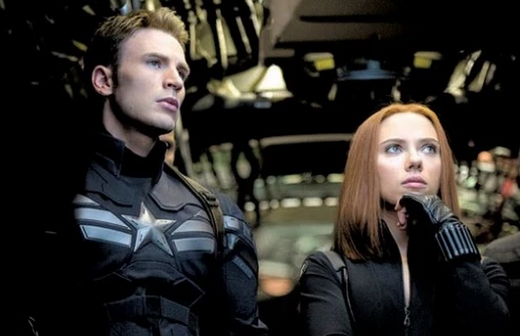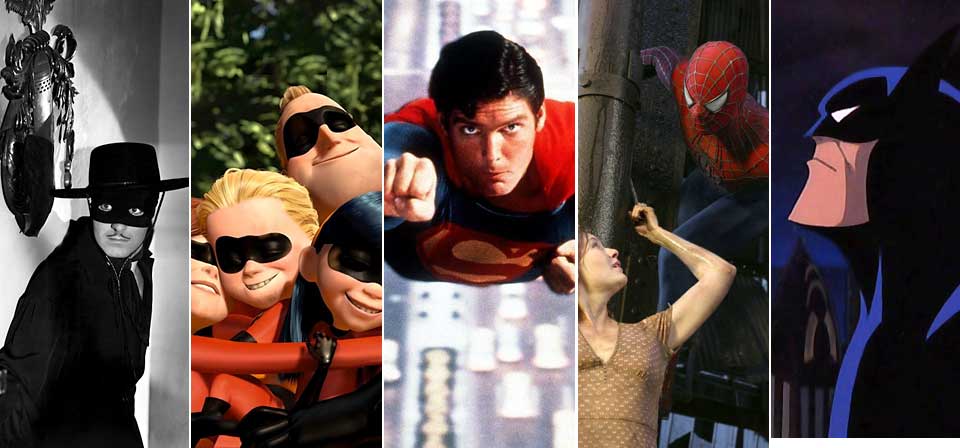Superhero movies and Catholic faith
Captain America, Superman and Stratford Caldecott
Less than two months ago, the British Catholic writer Stratford Caldecott died after a lengthy battle with cancer. In the weeks prior to his death, his name became improbably entangled in a viral Twitter storm that made international news in connection with the superhero movie Captain America: The Winter Soldier, now available on home video.

Well known in Catholic circles for his writings about J.R.R. Tolkien, among many other topics, Caldecott — or “Strat,” as friends called him — was an avid fan of superhero comic books and movies, and didn’t shy from exploring comic-book mythology from the perspective of Catholic faith.
When it became clear that Caldecott, too weak to see The Winter Soldier in theaters, wouldn’t live to see the home video release, his daughter Sophie petitioned Disney/Marvel for an advance copy of the film for her father — and started a Twitter campaign under the hashtag #CapForStrat appealing to the Marvel actors for photos of themselves with signs encouraging Caldecott.
The response was gratifying, to say the least. Beginning with Mark Ruffalo (Bruce Banner), nearly all the major Avengers and “Agents of Shield” actors — over a dozen in all — took part in the heavily covered #CapForStrat photo campaign. And Disney came through with the movie, allowing Caldecott to watch the last Marvel movie of his lifetime with his family before he died.
Happily, The Winter Soldier is a step up from earlier post-Avengers Marvel movies, with an effective blend of action, humor and a sprinkling of moral themes. Extending and developing themes from The Avengers, the film engages the perils of the post-Patriot Act surveillance state, drone strikes and preemptive war.
What did Caldecott as a Catholic writer see in superheroes? Last year, in one of his final essays, he wrote about Superman and the gritty 2013 reboot Man of Steel — a movie that, for what it’s worth, he admired more than many critics and viewers, including me.
Superman’s Christological resonances — sent by a father in the heavens to bring salvation to the world — are old hat, of course. (Man of Steel also offers an intriguing critique of Krypton’s artificial reproduction regime resonating with Catholic pro-life teachings. Any pro-life resonances are outweighed for me, though, by the numbing mayhem of the last act, the failure to preserve Superman’s code against killing, and his adoptive father’s willingness to countenance the death of innocents, even effectively committing suicide, to protect his son’s secret.)
But Caldecott went beyond the usual observations to reflect on Superman in relation to death and resurrection, in terms evocative of Tolkien’s writings about mythology (though he admitted elsewhere that Tolkien would not have shared his love of pulp heroes).
The Man of Steel, Caldecott wrote, evoked in a way the qualities Catholic faith ascribes to the resurrected body. “Superman’s job is to remind us of what we can become,” Caldecott concluded, referring not solely to Superman’s moral example, but also to his godlike imperviousness to harm and freedom from physical constraints.
Caldecott was buried beside his literary hero Tolkien, in the hope of rising again in a form far beyond those of mortal men.
Related

Top 10 Superhero Movies
Why do we love costumed crusaders? Larger-than-life heroes fill a cultural niche occupied in the 1950s by gunslingers, in earlier centuries by Robin Hood and King Arthur, and in antiquity by the likes of Hercules, Perseus, and Odysseus.
Recent
- Benoit Blanc goes to church: Mysteries and faith in Wake Up Dead Man
- Are there too many Jesus movies?
- Antidote to the digital revolution: Carlo Acutis: Roadmap to Reality
- “Not I, But God”: Interview with Carlo Acutis: Roadmap to Reality director Tim Moriarty
- Gunn’s Superman is silly and sincere, and that’s good. It could be smarter.
Home Video
Copyright © 2000– Steven D. Greydanus. All rights reserved.